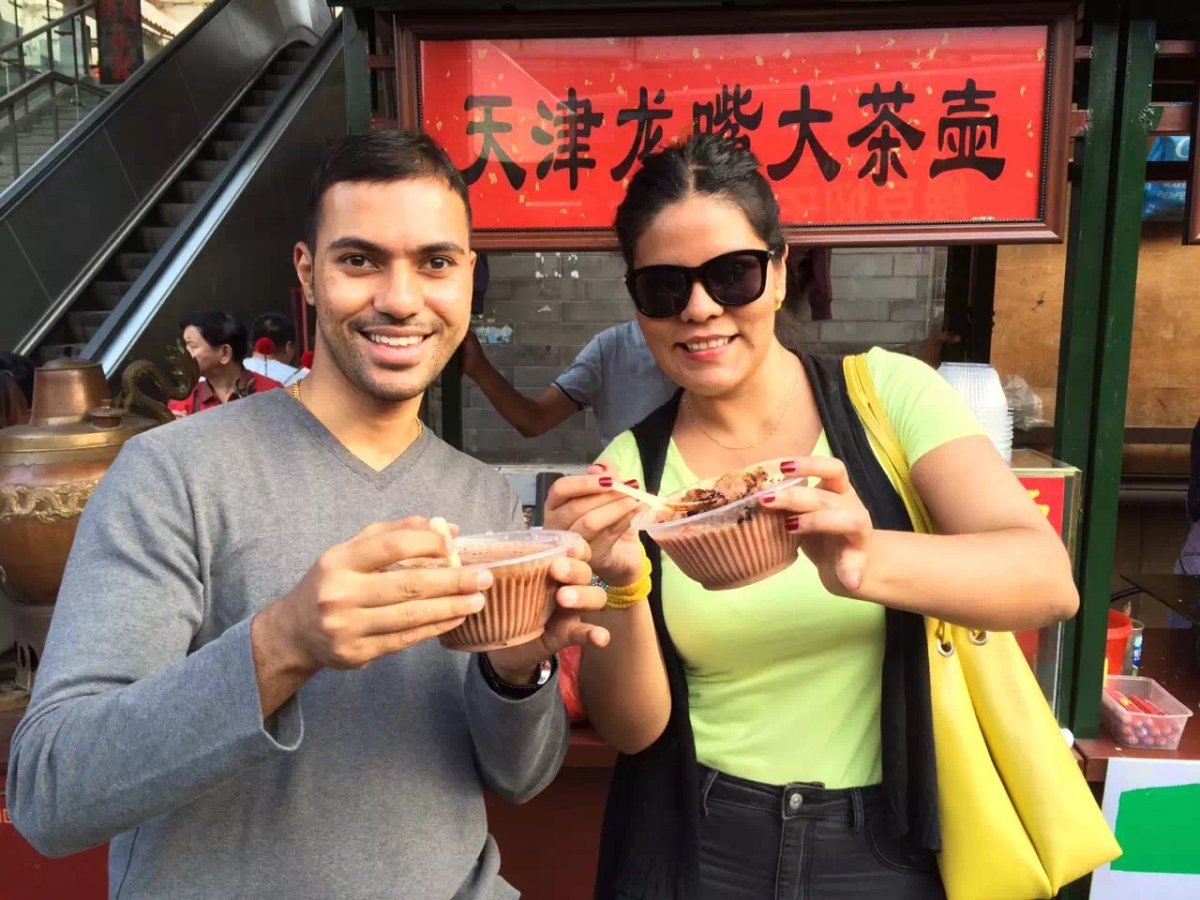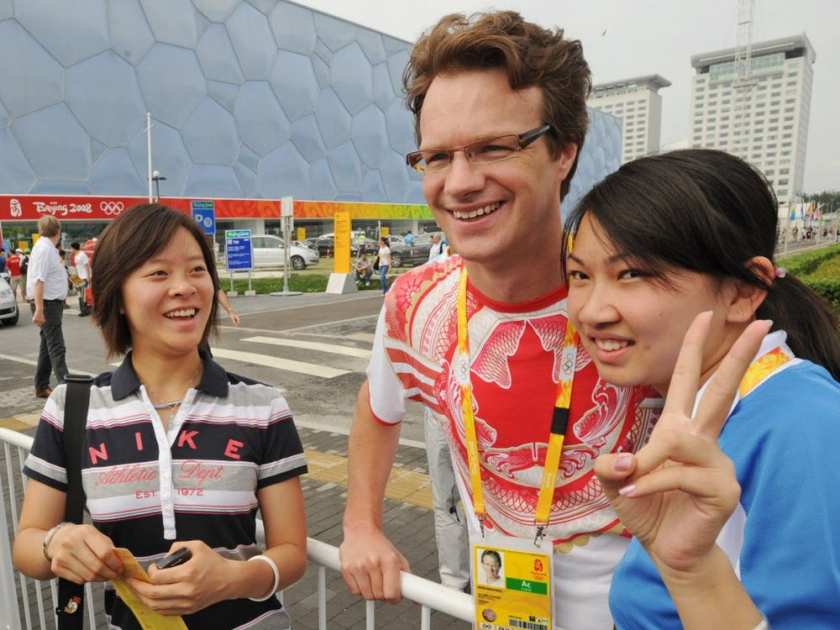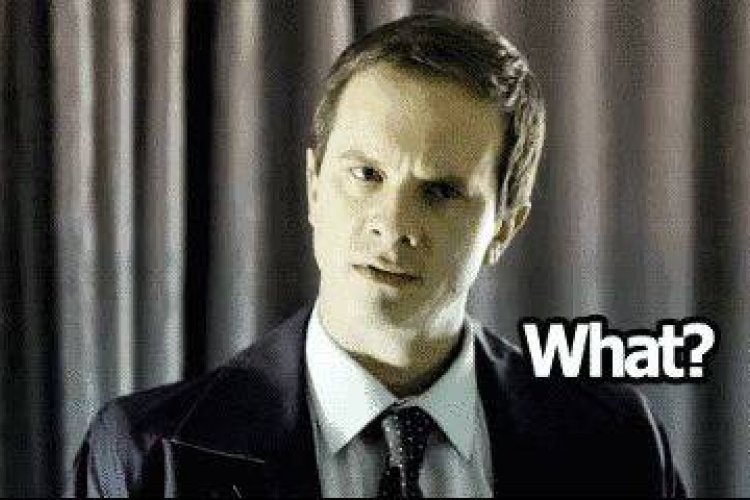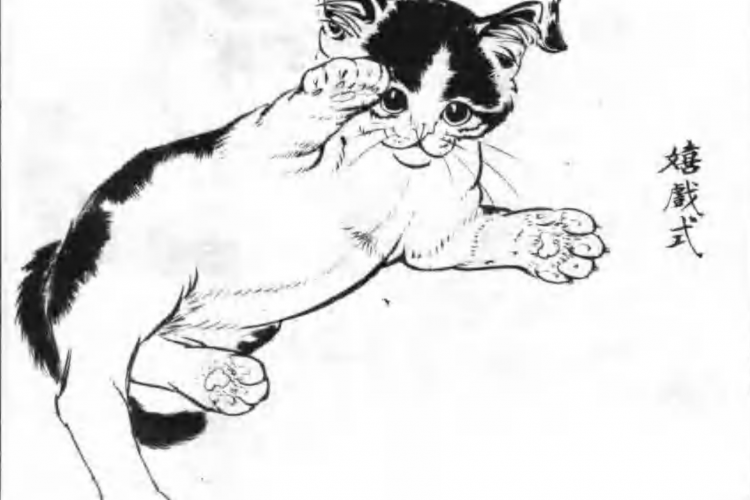Mandarin Month: Is it Offensive to Be Called a Laowai?
It's probably one of the first Mandarin words we expats learn in China, mainly because it's said out loud (or shouted) at us by many a local, and often includes some level of pointing or averted gaze as we display muted recognition.
Yes, we're of course talking about the term laowai.
A recent blog of ours, The Complete A-Z For Beijing Newcomers (or Visitors), described the term as "Chinese slang for 'foreigner,' often said out loud after having been spotted by a particularly perceptive local." Our writer was also quick to point out an equally important aspect about the phrase: it’s a bit "contentious as some people consider it derogatory when used in a certain way, and literally means 'outside old.’"
READ: A Guide to Getting Laid with Laowai. Really?
Many foreigners eventually become desensitized to such labeling, given the frequency of its usage, or shrug it off as meaningless from the outset. And yet there is still a surprisingly outspoken (albeit small and overenthused) portion of expats who are outraged by its utterance. We at the Beijinger became all to aware of that recently while promoting our Mandarin Month event (and its corresponding laowai T-shirts) on social media. This prompted one commenter to go on a very impassioned (and profane) rant against the term:

Other outraged readers insisted the term was racist, and a few even went as far as to call for a boycott of the Beijinger (but not before firing off some offensive slurs and inflammatory language of their own). Contentious as all this has become, it is by no means the first of such heated, laowai-related screed online. Anna Z, for instance, wrote on her Lost Panda blog (which she bills as an account “about life in rural China”): “It is time to stand up against a word that not just carries a derogatory connotation, but discriminates everyone in China who is not Chinese.”

She goes on to concede that such labeling is integral to the Chinese lingual structure. “In China you never only have ‘a friend’ (朋友 péngyǒu). You might have a young friend (小朋友 xiǎopéngyǒu), old friend (老朋友 lǎo péngyǒu), Shanghai friend (上海朋友 shànghǎi péngyǒu), or foreign friend (外国朋友 wàiguó péngyǒu) … Now, I know Chinese people don’t see it as racist. However, my point is with globalization and all, China has to pay more attention of its use of language, and so should their citizens.” That sentiment is echoed by numerous other bloggers in this roundup.
But Mudhun Ananthaiyer Ganesh disagrees. As an expat who studied Chinese at the Ideal Mandarin language center (we wrote about his story as part of last year’s Mandarin Month coverage), he attributes much of the issue to a lack of PC conditioning in China. He’d rather not waste time quibbling about it with his Chinese friends and colleagues, explaining: “Other foreigners who haven’t spent a few years in China may get offended by the term. But they will get used to it, and will learn to accept or ignore it,” advice that some may find hard to swallow.

Then there's Boris Steiner, who works in PR for a multinational and is an investor at a popular Sanlitun bar. He thinks it’s “ridiculous” to be outraged by being called laowai because “at the end of the day I don’t think anyone means it in an offensive way,” though he admits it does annoy him on rare occasions.
Steiner’s friend Jiaming Xing – who interacts with plenty of foreign and Chinese patrons as the owner of the Gewa Qinghai noodle restaurant and the manager of Gongti hip-hop club Room 79 – agrees that there's no reason to take umbrage with the term. “Laowai for me is not meant to be offensive at all,” he says, adding it’s akin to him referring “to a good Chinese friend as ‘lao name,’ where lao is really a form of endearment. Nothing derogatory at all.”
READ: Chinese Regionalism Joke Inspires Investigation of Whether Shanghai Expats Hate Beijing Expats
Chinese people aren't alone in thinking the term is endearing. Dan Makowski, an American expat and fluent Mandarin speaker that has spent plenty a night trading woozy, good-natured barbs with Chinese and foreign pals at Wudaoying's School Bar, used much of the same phrasing as Jiaming when asked about the term's usage, adding "random locals referring to foreigners as laowai is as nondescript as it gets. If the people using the term don't mean anything offensive by it, I don't think it should be construed as offensive."
Meanwhile Makowski's friend Felix Liu, School Bar's owner and a former Chinese language teacher, recalls with a laugh: "I'd always explain to my foreign students: laowai is a term that originated in Beijing's local dialect, it means: 很亲切的外国人 (hěn qīnqiè de wàiguó rén, "very kind foreigner") or 很有意思的外国人 (hěn yǒuyìsi de wàiguó rén, "very interesting foreigner"). But if someone calls you shabi laowai, then you beat them."
Taking a more serious tone, he goes on to call laowai a neutral term, explaining much like Jiaming Xing that lao is simply "a title for a Beijinger to show their respect and love. Like, I call my wife Lao Wang, because her family name is Wang, or in the same way that I am Lao Liu to my friends. In Beijing, 老师傅 (lao shifu) means 'old master,' and 老板 (lao ban) means 'boss.'"
After seeing such a clash of opinions for this story, I couldn’t help but consider how dramatically my stance on the issue has changed during my time in China. My wife’s parents in rural Inner Mongolia, for instance, would often call me laowai when we first met, much to the amusement of my friends back in Canada whenever they asked me to dish on the cultural clashes with my in-laws. It took some time for me to realize that it wasn’t because my father in-law couldn’t be bothered to remember my name, but that he was instead horrified by the prospect of offending me by mispronouncing it. It may have simply been that the combination “y” and “l” in “Kyle” isn’t an easy prospect for a fellow who has yet to learn “hello” in English.
READ: Red Dress Charity Run Attracts Online Controversy as Animosity Towards Expats Grows
And while the whole thing may seem pedantic, it spoke volumes about the differences in our sensibilities. It also lead me to be far more patient, empathetic and above all good humored, seeing as my father in-law now sounds like South Park’s Cartman whenever he greets me (who knew a one syllable name like “Kyle” could really be that tough to say?). It's these instances of crosscultural bonding (and the chuckles that inevitably come with them) that allow for a welcome breather to the ever-escalating debates about political correctness, and in some cases, downright outrage, where neither side gets through to the other.
If you're interested in finding out what the linguistic experts think, come along to our Mandarin Month Mixer this Saturday Sunday, June 25 at Q Bar, 11am-3pm, and ask them yourself.
More stories by this author here.
Email: kylemullin@truerun.com
Twitter: @MulKyle
WeChat: 13263495040
Photos: sfu.ca, Lost Panda, Facebook, courtesy of Mudhun Ananthaiyer Ganesh
Related stories :
Comments
New comments are displayed first.Comments
![]() ANAKOJA
Submitted by Guest on Wed, 09/18/2019 - 16:35 Permalink
ANAKOJA
Submitted by Guest on Wed, 09/18/2019 - 16:35 Permalink
Re: Mandarin Month: Is it Offensive to Be Called a Laowai?
interesting how so many people get "offended " by the term laowai but they still use the "laowai" privilege when they want something done easily. Why is it so hard to understand that if you are not born in china or have chinese descendants you are not chinese, you are a 中国通。yes, you have given a lot to the country but the country has given a lot to you too. Anyways this is just my opinion on this matter. Ive been both called laowai, waiguoren, in both situations, for good or for bad but i dont see it as an offense.
![]() admin
Submitted by Guest on Thu, 09/12/2019 - 10:50 Permalink
admin
Submitted by Guest on Thu, 09/12/2019 - 10:50 Permalink
Re: Mandarin Month: Is it Offensive to Be Called a Laowai?
So if a Westerner lives in Australia, s/he's a "racist colonialist oppressor maybe", and if s/he lives in China, they're a laowai?
Jokes, people. Hence the smiley at the end of that statement. Don’t go shoot up a mosque in anger, ok Gormey?
If you're a Westerner, you must have a pretty low view of your race. You have a self-contempt of which I do not wish to take part. Got anything nice to say? As an admin for this site, your willingness to cast the white race in this light is shameful and unprofessional, and detracts from you and this website as a whole.
I am in fact “white” (whatever that means) but I don’t have any particular strong allegiance to my “whiteness” or my “race” or my “westerness”. Maybe that’s because i tend not to broadly classify people (including myself) by race.
If someone Chinese treats me like an asshole, i think “asshole”, not “Chinese asshole”. Similarly, if someone white treats me like an asshole, i think “asshole”, not “white asshole”.
My opinions are my own and are not intended to represent “the white race” or really anyone except for me.
![]() admin
Submitted by Guest on Thu, 09/12/2019 - 10:27 Permalink
admin
Submitted by Guest on Thu, 09/12/2019 - 10:27 Permalink
Re: Mandarin Month: Is it Offensive to Be Called a Laowai?
I would heartily encourage you to have a chat with the ghost of MLK before engaging in any further debate related in any way whatsoever to racism as you don’t really seem to understand the connotations and power of what that word actually conveys.
I am a foreigner and I don’t find it offensive. Simple as that.
As to what connotations the word “laowai” has, the jury’s out there — as addressed above, the vast majority of the connotations associated with the honorific prefix “lao” are positive.
Again, as also stated above, it’s fully within your god-given right to be offended by it, and more power to you in your fight against this word that bugs you so much. It’s a tough cross to bear, being easily offended.
As for me, I’ve rarely been called “laowai” in 18 years here and when i have been called that, it’s rarely been used as a pejorative (except when used preceeded by “他妈的” or “傻逼” — which again, has been an extraordinary rare experience for me).
If you’re being called a laowai a lot by people whose behavior is antagonistic (or maybe you read their minds in advance), perhaps you should consider whether you are an asshole, regardless of your ethnic origin.
Are there racists in China? Certainly, just like every place in the world (rather unfortunately).
Do i think people who have called me “laowai” did so with a racist intention? Almost never. To be honest i think most of the times I’ve heard it, its been in rural areas of China or from someone like a taxi driver who has rarely interacted with foreigners, and its used not as a racist epithet but rather out of curiosity. When these people use the term, i do not take offense.
In summary, “laowai” i dont get my panties in a bunch about. “Tamade shabi laowai” , yeah, offended
![]() zerologic
Submitted by Guest on Thu, 09/12/2019 - 09:55 Permalink
zerologic
Submitted by Guest on Thu, 09/12/2019 - 09:55 Permalink
Re: Mandarin Month: Is it Offensive to Be Called a Laowai?
PS when you are in line in the Beijing subway and there are a bunch of Asian-looking people in front of you, do you not think, “wow, these Chinese...” well you racist little creep! Don’t you realize some of these people could be Korean, or Japanese, or Malaysian, or Vietnamese?
As you previously stated, 99.5% Chinese. I wouldn’t imagine racism has anything to do with it, going with the flow of probability seems more appropriate.
And if there were a bunch of non-Asian people, what would you say to yourself? "Wow, what are all these people who are from an undetermined non-Asian origin doing in the subway?"
I’m staggered that you actually wrote and tried to defend what you had previously written. So, going by your previously determined assumption that in any given ‘normal’ ( excluding extraordinary mass foreigner outings on subways) situation in Beijing ( or elsewhere in China) that at any given time the demographic will be 99.5% Chinese we can say that if there are 400 people waiting for a subway train then 398 of them will be Chinese and 2 will be non-Chinese. So, a person stating that there are a lot of Chinese people waiting for the train is an accurate description of what that person is seeing and that’s it, nothing more, it is as connected to racism as a banana is to a whale. I would heartily encourage you to have a chat with the ghost of MLK before engaging in any further debate related in any way whatsoever to racism as you don’t really seem to understand the connotations and power of what that word actually conveys. Personally, if I see a lot of people waiting for a train in China and I felt in some way compelled to comment out loud on the situation ( which I probably would not), I would state that there are a lot of people waiting for the train, I wouldn’t need to state that the vast majority are Chinese, that part is so obvious that is not necessary to include it. Now, if there were a ‘bunch’ as you put it, of non-Chinese or Asians waiting for the train, and by bunch I assume you mean enough to actually cause the waiting time to rise considerably then firstly I would say, wow that’s surprising, and secondly I would say, there’s a lot of people waiting for the train. Astonishing how different it is to the first demographic hey?
the only thing I will take away from this is that there is a person who works for this magazine who does not understand the difference between logical, passive observation and racism. That, I also find staggering.
![]() gorm_den_gamle
Submitted by Guest on Thu, 09/12/2019 - 03:22 Permalink
gorm_den_gamle
Submitted by Guest on Thu, 09/12/2019 - 03:22 Permalink
Re: Mandarin Month: Is it Offensive to Be Called a Laowai?
So if a Westerner lives in Australia, s/he's a "racist colonialist oppressor maybe", and if s/he lives in China, they're a laowai? If you're a Westerner, you must have a pretty low view of your race. You have a self-contempt of which I do not wish to take part. Got anything nice to say? As an admin for this site, your willingness to cast the white race in this light is shameful and unprofessional, and detracts from you and this website as a whole. Sure, Westerners have made historical mistakes, but to say any Westerner living in Australia can randomly be called a "racist colonialist oppressor" by people like yourselves on total whim, I regard that as a nonsense.
Admin, I can't believe you essentially repeated the same mantra "it doesn't matter". You did not acknowledge nor take any of my points into account (which is really bad debating, btw), for example 老外/外国人 continuing to be used by Chinese migrant communities OUTSIDE China of locals in the countries they move to, nor did you address the fact that Da Shan doesn't particularly like the word, despite being the poster boy for this article.
You said "you are a laowai". I'm not. I'm an Australian living in Australia. I know who I am. I have a spine and a backbone.
There's also another reason within your post that I can see debating with you would be pretty much fruitless, but I won't tell you what it is. I wonder who else can spot it.
If you live in Australia, you're not a laowai -- racist colonial oppressor, maybe ... laowai, no
I live in China and I am a laowai or a waiguoren or (most patronizingly of all, waiguo pengyou). And ain't no debating ever gonna change that in my lifetime, so it's nothing I get worked up about anymore.
So to me, it does not matter.
And if the masses of laowai in China want to march around steaming about this minor linguistic peccadillo, they can go ahead and rage.
I, however, as I stated above, choose not to pound my head against brick walls over such things as attempting to instruct 1 billion+ Chinese the proper use of their own language.
![]() admin
Submitted by Guest on Thu, 09/05/2019 - 12:21 Permalink
admin
Submitted by Guest on Thu, 09/05/2019 - 12:21 Permalink
Re: Mandarin Month: Is it Offensive to Be Called a Laowai?
Admin, I can't believe you essentially repeated the same mantra "it doesn't matter". You did not acknowledge nor take any of my points into account (which is really bad debating, btw), for example 老外/外国人 continuing to be used by Chinese migrant communities OUTSIDE China of locals in the countries they move to, nor did you address the fact that Da Shan doesn't particularly like the word, despite being the poster boy for this article.
You said "you are a laowai". I'm not. I'm an Australian living in Australia. I know who I am. I have a spine and a backbone.
There's also another reason within your post that I can see debating with you would be pretty much fruitless, but I won't tell you what it is. I wonder who else can spot it.
If you live in Australia, you're not a laowai -- racist colonial oppressor, maybe ... laowai, no 
I live in China and I am a laowai or a waiguoren or (most patronizingly of all, waiguo pengyou). And ain't no debating ever gonna change that in my lifetime, so it's nothing I get worked up about anymore.
So to me, it does not matter.
And if the masses of laowai in China want to march around steaming about this minor linguistic peccadillo, they can go ahead and rage.
I, however, as I stated above, choose not to pound my head against brick walls over such things as attempting to instruct 1 billion+ Chinese the proper use of their own language.
![]() gorm_den_gamle
Submitted by Guest on Thu, 09/05/2019 - 04:40 Permalink
gorm_den_gamle
Submitted by Guest on Thu, 09/05/2019 - 04:40 Permalink
Re: Mandarin Month: Is it Offensive to Be Called a Laowai?
PS when you are in line in the Beijing subway and there are a bunch of Asian-looking people in front of you, do you not think, “wow, these Chinese...” well you racist little creep! Don’t you realize some of these people could be Korean, or Japanese, or Malaysian, or Vietnamese?
As you previously stated, 99.5% Chinese. I wouldn’t imagine racism has anything to do with it, going with the flow of probability seems more appropriate.
In another post Admin is angry at me about disliking the word "laowai", which lumps all white-looking people in the same pot. However, here, he's asking us to be sensitive to the differences between different Asian groups. This is a contradiction in his/her mind that he/she has overlooked. It's quite pathetic when one stops and thinks about it. Doubt this Admin will do that, though. Double standard.
![]() gorm_den_gamle
Submitted by Guest on Thu, 09/05/2019 - 04:27 Permalink
gorm_den_gamle
Submitted by Guest on Thu, 09/05/2019 - 04:27 Permalink
Re: Mandarin Month: Is it Offensive to Be Called a Laowai?
Admin, I can't believe you essentially repeated the same mantra "it doesn't matter". You did not acknowledge nor take any of my points into account (which is really bad debating, btw), for example 老外/外国人 continuing to be used by Chinese migrant communities OUTSIDE China of locals in the countries they move to, nor did you address the fact that Da Shan doesn't particularly like the word, despite being the poster boy for this article.
You said "you are a laowai". I'm not. I'm an Australian living in Australia. I know who I am. I have a spine and a backbone.
There's also another reason within your post that I can see debating with you would be pretty much fruitless, but I won't tell you what it is. I wonder who else can spot it.
![]() admin
Submitted by Guest on Mon, 08/26/2019 - 14:17 Permalink
admin
Submitted by Guest on Mon, 08/26/2019 - 14:17 Permalink
Re: Mandarin Month: Is it Offensive to Be Called a Laowai?
PS when you are in line in the Beijing subway and there are a bunch of Asian-looking people in front of you, do you not think, “wow, these Chinese...” well you racist little creep! Don’t you realize some of these people could be Korean, or Japanese, or Malaysian, or Vietnamese?
As you previously stated, 99.5% Chinese. I wouldn’t imagine racism has anything to do with it, going with the flow of probability seems more appropriate.
And if there were a bunch of non-Asian people, what would you say to yourself? "Wow, what are all these people who are from an undetermined non-Asian origin doing in the subway?"
![]() zerologic
Submitted by Guest on Thu, 08/22/2019 - 00:11 Permalink
zerologic
Submitted by Guest on Thu, 08/22/2019 - 00:11 Permalink
Re: Mandarin Month: Is it Offensive to Be Called a Laowai?
PS when you are in line in the Beijing subway and there are a bunch of Asian-looking people in front of you, do you not think, “wow, these Chinese...” well you racist little creep! Don’t you realize some of these people could be Korean, or Japanese, or Malaysian, or Vietnamese?
As you previously stated, 99.5% Chinese. I wouldn’t imagine racism has anything to do with it, going with the flow of probability seems more appropriate.
![]() admin
Submitted by Guest on Tue, 08/20/2019 - 20:05 Permalink
admin
Submitted by Guest on Tue, 08/20/2019 - 20:05 Permalink
Re: Mandarin Month: Is it Offensive to Be Called a Laowai?
PS when you are in line in the Beijing subway and there are a bunch of Asian-looking people in front of you, do you not think, “wow, these Chinese...” well you racist little creep! Don’t you realize some of these people could be Korean, or Japanese, or Malaysian, or Vietnamese?
![]() admin
Submitted by Guest on Tue, 08/20/2019 - 20:02 Permalink
admin
Submitted by Guest on Tue, 08/20/2019 - 20:02 Permalink
Re: Mandarin Month: Is it Offensive to Be Called a Laowai?
老外,外国人,whatever. Take offense if you’d like. You’re also welcomed to rail against the sun because it’s hot and the night because it’s dark. However you’re going to have a hard time living life here. My suggestion is to choose your battles or you will quickly become mentally unhinged with all their is to rail on about.
You are a 老外 and until the demographics of this country shift to something else but 99.5% Chinese, you can expect this trend to continue.
![]() gorm_den_gamle
Submitted by Guest on Tue, 08/20/2019 - 10:48 Permalink
gorm_den_gamle
Submitted by Guest on Tue, 08/20/2019 - 10:48 Permalink
Re: Mandarin Month: Is it Offensive to Be Called a Laowai?
OMG, so much discussion about nothing. This high moral grounds of political correctnes that has sweapt the west today makes me sick. Everyone today gets offended by bullshit. Grow some balls people.
Yes, all of us foreighers here are laowai. Plain and simple. You are a foreigner here. So am I. Who cares. Get over it.
Well, one of us definitely has no balls, Bond. I assume you were responding to my post, as it came a week after mine and there were no posts for a long time. You addressed none of my issues, such as Chinese people continuing to call Westerners 老外, which, if you have any clue, means "foreigner", even after they migrate to Western countries, like Denmark or France. The indigenous people of these countries are definitely not foreigners. You're the one who needs to grow balls, because you fail to realise that such "foreigner" terms are based on a misconception from the start, i.e. on race. You are a 老外, not me. I am called the same as I introduce myself as, plain and simple.
I might add something I didn't mention in my previous post, Da Shan, photographed above said something along the lines of "the only real laowai are those who can't speak Chinese". Da Shan does speak Chinese. Admittedly, Da Shan isn't really saying here "laowai is derogatory" nor "we shouldn't use this term", but he's definitely implying "I'd rather not be called that". Interesting, then, that his image was chosen for this article. I regard people like you, Bond, as spineless. No backbone. I have a name, my own nationality and my own identity. If the next world superpower uses a name for me that basically means "outsider", then I regard that as significant.
![]() Bond1806
Submitted by Guest on Mon, 07/29/2019 - 15:30 Permalink
Bond1806
Submitted by Guest on Mon, 07/29/2019 - 15:30 Permalink
Re: Mandarin Month: Is it Offensive to Be Called a Laowai?
OMG, so much discussion about nothing. This high moral grounds of political correctnes that has sweapt the west today makes me sick. Everyone today gets offended by bullshit. Grow some balls people.
Yes, all of us foreighers here are laowai. Plain and simple. You are a foreigner here. So am I. Who cares. Get over it.
![]() gorm_den_gamle
Submitted by Guest on Sat, 07/20/2019 - 06:03 Permalink
gorm_den_gamle
Submitted by Guest on Sat, 07/20/2019 - 06:03 Permalink
Re: Mandarin Month: Is it Offensive to Be Called a Laowai?
Hi I am Awesome!
I was very relieved to read your comment. Finally someone with a sense of cultural awareness and basic manners and dignity.
An admin also commented on this same page, providing a long list of words which include the word 老, none of which would be offensive and then s/he goes on to then state on this basis that it's crazy to think that 老外 could be offensive. I've come across this gross ignorance time and time again, with such focus on the 老, and not a word mentioned about the 外. Now this admin has been in China for a decade, and his/her credentials are shared with so many other Westerners living in China or with a strong association with China, so I'm afraid there is little hope for a change in the use of "foreigner/洋人/外国人/老外" words for possibly a century. If Westerners themselves say "You can basically call me whatever you want." then we don't stand a chance.
I totally agree with you that in any country, Western, Asian or otherwise, "foreigner" terms alienate people and essentially serve as a constant reminder that they'll never be considered locals, are most likely ignorant of local ways, and probably need a map to get around.
What this admin and others don't seem to realise is that, perversely, Chinese continue to refer to Westerners as "foreigner/洋人/外国人/老外" even when they are visiting Western countries. So the common response among apologists for these expressions "You're in their country, so you are, in fact a foreigner." is a somewhat hollow argument, because the idea of "foreigner/洋人/外国人/老外" in their minds is clearly not based on the location being China anyway. So it's based on a misconception. And if we really want to go down the dictionary definition path, "foreigner/洋人/外国人/老外" should really mean ANYONE in ANY country who doesn't hold a passport for that country (or similar definition). But all too often, "foreigner/洋人/外国人/老外" words really refer to Westerners, White people, and we all know it despite common denials to the contrary. One commonly comes across racial concepts in China like "foreigners/洋人/外国人/老外 have big noses/sunburn easily/often have freckles/have red hair" etc, again demonstrating that the defence for these terms on simply "Oh but you are technically a foreigner" doesn't wash.
Essentially, people should call us what we introduce ourselves as. This is a rule of thumb that pretty much guarantees safety in any social situation. If someone introduces themselves as John, and I mistakenly call them Paul after that, it's an embarrassing gaffe. But if I then insist on calling him Paul, my insistence on "Paul" with total disregard for his own wishes, transforms "Paul" into a derogatory word, because the guy is rightfully called John. So all this rubbish about "foreigner/洋人/外国人/老外" not being derogatory doesn't make any sense, because people should call us what we introduce ourselves as. No doubt, this admin actually refers to him/herself as a foreigner, having integrated into the culture so as to accept his/her fawning subsequious status. 入乡随俗. But wait! Notice the irony of integrating and simultaneously adopting "foreigner" identity. Similarly I saw in a graded reader of the Chinese language, written by Chinese "academics", a Westerner actually introduces themselves by saying "我是外国人". The idea of anyone in their right mind going around INTRODUCING THEMSELVES as foreigners is so unlikely, not to mention grotesque, that it caused me to go back and put quotation marks around that word academics a few lines up. But this is seemingly what this admin actually does—introduces themselves as a foreigner—after all, it's not derogatory, after all the 老爸, 老大, 老二 evidence that he/she provided (although, that 老二 one didn't seem to raise any further comment, which, in the context of whether words are derogatory or not, seems quite laughable).
Occasionally I meet a Chinese person who is able to be persuaded that these "foreigner/洋人/外国人/老外" words are overused, to say the least. However, when I meet Westerners who rush to the defense of these words and argue in favour of their use and calling themselves such terms, I see little hope for Westerners to be respectable in any way to the Chinese people. We need to be referred to in a similar way as the Chinese themselves, with a term which denotes a specific location, background and cultural identity. To say these rights belong to all non-Westerners and that it's somehow PC to demand the same for Westerners is blinkered, obscurantist and bigotted in itself. I don't mind if some Whites/Caucasians don't like the term Westerner then that's OK. All of these terms are totally acceptable to me: White guy/him/her/Caucasian/Anglo/Westerner/Australian/<insert your own Western country> (And most definitely, in the case of Black Americans, or Aboriginal Australians and other non-White people from Western countries, they have exactly the same rights when it comes to self-definition and are no less LOCALS of the countries they are from. Apologies if any Black people feel alienated by anything I've said, it wasn't my intention, I'm just speaking for myself as a White person.)
The idea that clarity is needed when Chinese communicate with each other, so the "foreigner/洋人/外国人/老外" terms are needed is simply rubbish.
Don't get me wrong, "foreigner/外国人" are terms which may be needed and are unavoidable when they are used correctly and in context and towards all those who are not from the actual host country. With this usage, the word foreigner in say, Singapore, would refer to Western non-Singporeans, Chinese non-Singporeans and Japanese non-Singporeans etc etc alike. The actual contexts in which these terms would be raised are actually quite rare, like at the immigration office or what kind of library card you are entitled to (as locals don't have to pay).
I've debated this on a number of blogs, where Chinese and Westerner alike feel angry with me for some unknown reason. Personally, to disagree that we should be referred to in the same way as we introduce ourselves suggests some kind of cultural conditioning that runs extremely deep, if not something more dangerous like neurosis or delusions.
I'm not that concerned about whether the term 'laowai' includes any offensive words. It's moreso simply not fun to be constantly referred to as a foreigner. Laowai or waiguoren, what difference does it make?
If I was in my country of Canada, it would most certainly be considered offensive for me to point at people of non-white skin colours and shout "foreigner" or openly refer to non-Canadians as "the foreigner" in social situations.
I can certainly echo the experience of a preview commenter that laowai seems to be used when people don't think I can understand them and waiguoren is more likely to be used when people are at least attempting to be polite.
Personally, if people absolutely must refer to my based on my appearance alone, I could settle for being called a 'white person' in the language of their choosing, as that would be an accurate description of who I am, no matter where I am. However, simply calling everyone non-Chinese a foreigner robs us of an identity and simply designates us as non-belongers.
Don't think that Chinese tourists in Canada would appreciate being called foreigners, even though when they are approach, they have no qualms about carrying on with calling non-Chinese laowai, despite the inaccuracy, given geography.
![]() I Am Awesome
Submitted by Guest on Sun, 06/25/2017 - 23:10 Permalink
I Am Awesome
Submitted by Guest on Sun, 06/25/2017 - 23:10 Permalink
Re: Mandarin Month: Is it Offensive to Be Called a Laowai?
I'm not that concerned about whether the term 'laowai' includes any offensive words. It's moreso simply not fun to be constantly referred to as a foreigner. Laowai or waiguoren, what difference does it make?
If I was in my country of Canada, it would most certainly be considered offensive for me to point at people of non-white skin colours and shout "foreigner" or openly refer to non-Canadians as "the foreigner" in social situations.
I can certainly echo the experience of a preview commenter that laowai seems to be used when people don't think I can understand them and waiguoren is more likely to be used when people are at least attempting to be polite.
Personally, if people absolutely must refer to my based on my appearance alone, I could settle for being called a 'white person' in the language of their choosing, as that would be an accurate description of who I am, no matter where I am. However, simply calling everyone non-Chinese a foreigner robs us of an identity and simply designates us as non-belongers.
Don't think that Chinese tourists in Canada would appreciate being called foreigners, even though when they are approach, they have no qualms about carrying on with calling non-Chinese laowai, despite the inaccuracy, given geography.
![]() admin
Submitted by Guest on Sun, 06/25/2017 - 09:04 Permalink
admin
Submitted by Guest on Sun, 06/25/2017 - 09:04 Permalink
Re: Mandarin Month: Is it Offensive to Be Called a Laowai?
^ i've been here far longer than 10 years, and i rarely hear it used in a hostile or disparaging context. I can see how some people through the lens of their own cultural background take offense -- because where they are from (typically multi-ethnic immigration-heavy countries like the US), calling someone "foreigner" would be inappropriate, impolite or plain racist.
I am particularly perplexed by people who say 外国人 is OK but 老外 is not. If you are going to take offense at one, then by all means be offended by both as they are almost identical terms.
In fact astrong argument can be made that laowai is MORE respectful than waiguoren. lets look at similiar usages here:
老婆 - laopo - wife - inoffesnive
老公 - laogong - husband - inoffensive
老师 - laoshi - teacher - inoffensive
老朋友 - laopengyou - dear friend - inoffensive
老爸 - laoba - dad - inoffensive
老百姓 - laobaixing - ordinary people / the masses - inoffesive
老板 - laoban - boss - inoffensive
老大 - laoda - oldest child, leader - inoffensive
老二 - laoer - second born - inoffensive
老家 - laojia - home - inoffensive
老乡 - laoxiang - someone frowm your hometown
老外 - laowai - foreigner - OH GOD SO DEMEANING and BELITTLING and CRUEL and RACIST
Come on
![]() mimilulu
Submitted by Guest on Sat, 06/24/2017 - 21:56 Permalink
mimilulu
Submitted by Guest on Sat, 06/24/2017 - 21:56 Permalink
Re: Mandarin Month: Is it Offensive to Be Called a Laowai?
Thank you! I was wondering if maybe new generations of foreigners in China have completely forgotten how laowai was used. Personally, I believe that anybody that has been in China long enough and speaks good enough Chinese dislikes the world. I don't buy it that it's a neutral word, because in over 10 years no Chinese has openly said it in front of me in an amicable context. And if children happen to use it parents would quickly correct them. If its not good enough for educated Chinese I don't see why I should accept it.
Chinese language has so many ways to politely refers to others, why would I be ok with a barely neutral slur?
![]() charlesliu
Submitted by Guest on Thu, 06/22/2017 - 18:55 Permalink
charlesliu
Submitted by Guest on Thu, 06/22/2017 - 18:55 Permalink
Re: Mandarin Month: Is it Offensive to Be Called a Laowai?
Is it Offensive to Be Called a Laowai?
This is the wrong question. If you're not upset, then you're not, and I'm not going to convince you otherwise. But if the question is: "Am I causing harm by using the term 'laowai'?" then the answer is yes.
"Laowai' does not really mean anything in and of itself. Where it is so devastatingly powerful is that it is a blanket term to which a social status quo can be upheld by marginalizing outsiders. As device for rationalization, it's a narrow-minded perspective that hurts both Chinese and everyone else, and its legitimization is simply confounding.
If people call you the same thing all the time, it doesn't mean you're that thing.
Validate your mobile phone number to post comments.







